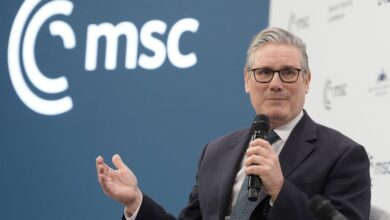
In a week of sweeping legal and political developments, the Trump administration has been dealt a series of significant blows — ranging from court rulings challenging presidential authority to high-profile resignations and controversial immigration policy changes.
In a major legal setback, the US Court of International Trade in New York has ruled that President Donald Trump exceeded his authority when he imposed broad-based tariffs on imported goods under emergency powers. Trump had declared April 2 a “Liberation Day” in celebration of the tariffs, presenting them as a bold step toward economic independence, according to DW.COM
The ruling came after a lawsuit was filed by the Liberty Justice Center on behalf of small businesses who argued the tariffs created chaos and uncertainty, lacking proper legislative oversight. The court agreed, noting that the president’s actions bypassed Congress and destabilized trade policy.
The White House swiftly responded by filing an appeal, asserting that “it is not for unelected judges to decide how to properly address a national emergency.”
Meanwhile, Elon Musk, the billionaire entrepreneur and head of the Department of Government Efficiency (DOGE), has confirmed his resignation from his temporary role as a special government employee. In a message posted on X, Musk thanked President Trump for the opportunity but cited growing disagreements over budget decisions as the reason for his departure.
“My time at DOGE ends, but the mission to eliminate wasteful spending must continue,” Musk wrote.
Reports from AP and Reuters indicate that Musk’s offboarding was finalized without direct consultation with Trump, and that internal conflicts over fiscal strategy contributed to his decision. Musk’s term was set to end around May 30, and he is expected to refocus on Tesla and SpaceX.
In other news, the federal court in Boston has blocked the Trump administration from terminating humanitarian parole programs that allowed hundreds of thousands of migrants to enter the US legally under temporary status.
US District Judge Indira Talwani ruled that the Department of Homeland Security had failed to provide a valid legal rationale for halting these programs.
The court’s decision represents yet another legal obstacle to Trump’s immigration agenda and raises questions about the future status of affected individuals. The DHS has yet to respond to the ruling, which may also face appeal.
On another note President Trump has issued a new series of controversial pardons, granting clemency to a mix of political figures, celebrities, and convicted criminals. Among those pardoned were Julie and Todd Chrisley, reality TV stars convicted of bank fraud and tax evasion; Larry Hoover, a former Chicago gang leader serving a life sentence; NBA YoungBoy, a rapper with a criminal record and a former Congressman and Governor, as well as several Trump-aligned supporters and former staffers.
Trump defended his decisions, claiming many of the pardoned individuals received “harsh treatment.” The latest round of pardons reinforces criticism that the president continues to use his clemency power to reward loyalty and media notoriety.
These recent developments highlight the increasing friction between the Trump administration and the judicial system, the strain within the White House’s inner circle, and the administration’s aggressive policy posture on immigration and trade. With legal appeals pending and public reaction mounting, the coming weeks may further test the resilience of Trump’s agenda—both domestically and abroad.
As the US navigates political uncertainty, global markets and diplomatic partners are watching closely, preparing for the potential fallout of a presidency defined by confrontation and unpredictability.












